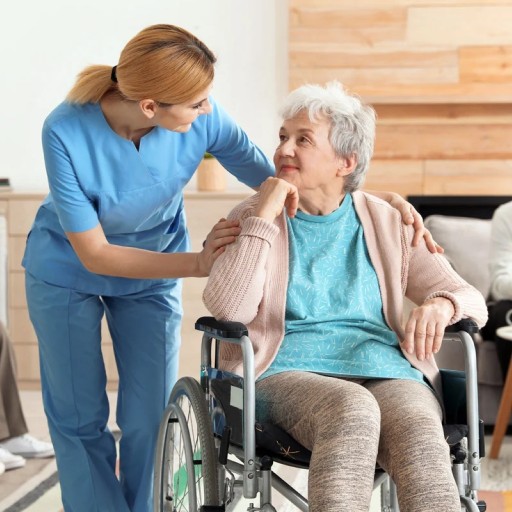Advertisement
In today's society, with the aging of the population, the health of older persons is a growing concern. Older people's health involves not only physical illness but also mental health. These two interact with each other, constituting a dual challenge to the health of the elderly.
Physical challenges faced by the elderly
According to the World Health Organization, the population of older people aged 65 and above will increase significantly in the coming decades. The health problems of the elderly are centered on physical illnesses such as cardiovascular disease, diabetes, and arthritis, as well as mental illnesses such as depression and anxiety.
The link between physical and mental health is becoming more evident, and older adults often face challenges that intersect the two.
There is a gradual decline in physical function, including vision, hearing, memory, and motor skills.
Declining eyesight affects activities such as reading, watching television, and traveling; declining hearing makes it difficult for older adults to communicate with others, increasing the risk of loneliness and depression.
Memory loss makes it easy for older adults to forget things, affecting their ability to take care of themselves in their daily lives; and declining motor skills can lead to limited mobility, increasing the risk of falls and fractures. In addition, the immune system of the elderly will gradually decline, making them vulnerable to infections and diseases.
Appetite and digestive functions tend to decline, resulting in inadequate nutritional intake. At the same time, as the body metabolic rate of the elderly decreases, the need for certain nutrients will also change.
For example, older adults need more calcium and vitamin D to prevent osteoporosis; and more protein to maintain muscle mass and body function.
However, many elderly people are unable to obtain adequate nutrition due to poor dietary habits and financial constraints. Inadequate nutrition can further exacerbate the risk of frailty and disease in the elderly.

Psychological Challenges for the Elderly
As they grow older, older people's social circle gradually narrows, with their children often absent and their friends fewer and fewer. This sense of loneliness and social isolation can cause psychological stress and distress to older people.
Loneliness can lead to psychological problems such as low mood, depression and anxiety among the elderly, affecting their mental health and quality of life. In addition, social isolation can lead to a lack of social support and care for older persons, increasing their risk of illness and death.
At the same time, older persons often face the threat of death, and the fear of death is an important psychological challenge for them. Fear of death can cause older persons to feel negative emotions such as anxiety, restlessness and despair, affecting their mental health and attitude towards life.
Some older persons may become overly concerned about their physical condition or even develop psychological problems such as hypochondriasis because of the fear of death.
The cognitive functions of the elderly will gradually decline with age, including memory, attention and thinking ability. Declining cognitive functions will bring a lot of troubles to the elderly, such as forgetting things, difficulty in concentrating, slow thinking, and so on.
These problems will affect the elderly's ability to perform daily life and take care of themselves, and increase their psychological burden. In addition, cognitive decline may also lead to the development of serious neurodegenerative diseases such as dementia in the elderly, which will bring a heavy burden to the family and society.
Advertisement
Elderly people may face various psychological pressures and emotional problems in their lives, such as financial difficulties, family conflicts and disease distress. These problems may cause psychological pain and distress to the elderly, affecting their mental health and quality of life.
For example, financial difficulties may make the elderly feel anxious and uneasy; family conflicts may make the elderly feel sad and disappointed; and disease distress may make the elderly feel fearful and helpless.

Psychological and Physical Interaction
Psychological problems can negatively affect an older person's body. Chronic loneliness, depression, anxiety and other psychological problems can lead to a decrease in immunity and an increased risk of illness in older people.
At the same time, psychological problems can also affect an older adult's sleep quality and appetite, further exacerbating physical weakness and the risk of disease. For example, people with depression often suffer from sleep disturbances and loss of appetite, symptoms that can affect their physical health.
Physical problems can also negatively impact the psyche of older adults. Physical problems such as chronic illnesses and declining physical functioning can cause older adults to feel distressed and helpless, which can lead to psychological problems such as depression and anxiety.
In addition, physical problems can affect older persons' social activities and ability to perform daily living tasks, increasing their sense of loneliness and social isolation and further aggravating psychological problems.
For example, older people with arthritis may reduce their activities due to pain, leading to a narrowing of their social circle and an increased risk of loneliness and depression.

Strategies to address the dual challenges of older adults' health
Older people should undergo regular medical check-ups to detect and treat various chronic diseases in a timely manner. Regular physical checkups can help older people understand their health conditions, take appropriate preventive and treatment measures, and improve their quality of life.
Older people should pay attention to the nutritional balance of their diet, eat more vegetables, fruits, whole grains, low-fat proteins and other healthy foods, and reduce the intake of salt, sugar and oil. A proper diet can help the elderly maintain good health and prevent various chronic diseases.
Elderly people should do proper exercise according to their physical condition, such as walking, tai chi, yoga, and so on. Appropriate exercise can help older people enhance their body functions, improve their immunity and prevent various chronic diseases.
Older people who suffer from chronic diseases should take medication on time and follow their doctor's advice for treatment. Taking medication on time can help older people control their condition and prevent the disease from worsening.
You can choose some activities that suit you according to your interests, such as painting, calligraphy, photography, music and so on. Cultivating hobbies can help older people enrich their lives, improve their quality of life and relieve psychological pressure.
Elderly people can learn some knowledge about mental health, understand their own psychological condition, and master some methods and skills to cope with psychological problems. Learning about mental health can help older people raise their awareness of mental health and prevent and alleviate psychological problems.
The dual challenges of health problems of the elderly require the joint efforts of society, families and individuals. The dual challenge of mental and physical health is the main problem facing the health of the elderly.
Paying attention to the physical and mental health of the elderly and adopting effective coping strategies can help the elderly better cope with the dual challenge of health, improve their quality of life, and enjoy a happy life in their twilight years.
At the same time, we should also strengthen our research and attention to the health problems of the elderly, provide them with better health care and social services, and promote the harmonious development of society.
Advertisement





